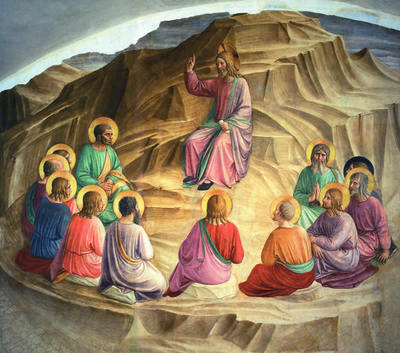Fourteenth Sunday After Pentecost

The Collect
Keep, we beseech Thee, O Lord, Thy Church
with Thy perpetual mercy,
and because the frailty of man without Thee cannot but fall,
keep us ever by Thy help from all things hurtful,
and lead us to all things profitable to our salvation.
Through our Lord Jesus Christ Thy Son,
Who liveth and reigneth with Thee,
in the unity of the Holy Ghost,
one God, world without end. Amen.
Weakness and Mercy
There is a remarkable balance in the composition of the Collect. The frailty of man cannot but fall; but the mercy of God is perpetual, and ever available to the man about to slide into sin. The psalmist says: “Unless the Lord had been my helper, my soul had almost dwelt in hell. If I said: My foot is moved: your mercy, O Lord, assisted me.” (Psalm 93:17-18)
The Noxious and the Healthful
In the second part of the Collect we ask to be pulled away from noxiis, from all things poisonous and harmful to our souls, and we pray to be directed toward salutaria, towards all things healthful to our souls.
Realism
This is yet another example of the Roman Liturgy’s realism. The Church has no illusions about the frailty of human nature; she is not surprised or shocked by the weaknesses of her children. At the same time, the Church has an abiding confidence in God’s perpetual mercy. Thus does her liturgy keep us from falling into despair on the one side, and into presumption on the other. The prayer is a practical one. It is applicable to souls at every stage of the Christian life.
First Vespers at the Magnificat
(Proverbs 6:20-21)
My son, keep thy father’s commandment,
and forsake not the law of thy mother,
but bind them continually upon thine heart.
The wisdom of keeping the law of God is transmitted from generation to generation. Parents are the first educators in the Catholic faith. Their primary obligation is to set the feet of their children in the way of holiness. One does well, all through life, to cling to those truths of the faith learned at one’s father’s side and mother’s knee.
At the Benedictus
(Matthew 6:31-32)
Take no thought, saying : What shall we eat ? *
or, What shall we drink ?
For your Father knoweth what things ye have need of. Alleluia.
Our Lord commands us to trust in the Father’s solicitude for us. He would have us rely upon the Father’s goodness and upon the infinite resources of His Divine Providence.
Second Vespers at the Magnificat
(Matthew 6:33)
Seek ye first the kingdom of God *
and His righteousness,
and all these things shall be added unto you. Alleluia.
The kingdom of God and His holiness: this is the first and indispensable focus of the Christian life. Through the ages, the saints demonstrate that one who seeks first the kingdom will want for nothing. The Father provides for those who seek the knowledge of His glory shining upon the Face of His Christ.
